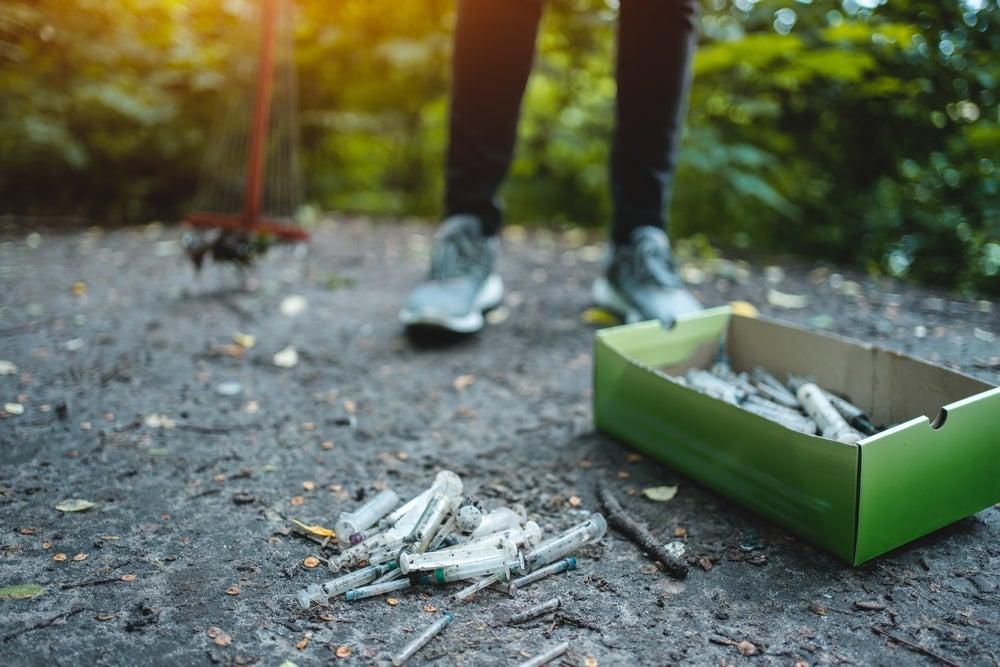
Sizing up the pharma industry’s environmental impact, of which industrial effluents from manufacturing facilities constitute the bulk, is crucial. The theme of this year’s recently observed Earth Day was to encourage everyone— governments, citizens and businesses—to do their part to invest in our planet.
The improper disposal of drugs and antibiotics has long been linked to being a cause of harm to wildlife and the environment, as well as increasing the risk of antimicrobial resistance. Last week, the FDA started seeking public comment for an initiative that involves the dispensation of opioid drugs, prescribed in the outpatient setting, via prepaid mail-back envelopes. The idea is to encourage and educate patients on how they can send any unused drugs to the Drug Enforcement Administration with ease.

Discover B2B Marketing That Performs
Combine business intelligence and editorial excellence to reach engaged professionals across 36 leading media platforms.
While there are several state and national-level guidelines, an overall lack of awareness on how to dispose of prescription drugs means unused or expired medications run the risk of ending up in the environment where they are not supposed to be.
Don’t dispose drugs down the toilet
The Environmental Protection Agency asks consumers to not flush expired or unwanted prescription drugs down the toilet unless the label expressly says so. But a recently published study that surveyed people from Italy, Japan, and the US found that the most common method used by Americans to dispose of drugs was to flush them down the toilet.
“There are a lot of public announcements and drug take back programs, that warn people to not put [drugs] in the toilet because it can really spoil the water system,” Khalid Kamal, who coauthored the paper, tells Pharmaceutical Technology. Still, more than a third of the study’s participants in the US got rid of their medications in the toilet.
Once disposed, these drugs can enter drinking water reservoirs, either by leaching into the groundwater system or going through wastewater treatment plants that are not equipped to process them. Several studies have noted how drugs with a potential for abuse like amphetamines and opioids have been detected in not just wastewater plants, but also in drinking water sources.

US Tariffs are shifting - will you react or anticipate?
Don’t let policy changes catch you off guard. Stay proactive with real-time data and expert analysis.
By GlobalDataCultural norms influence drug disposal
Local cultural norms and available options also play a significant role in how drugs are disposed by individuals. A little more than half of participants surveyed in Turin, Italy returned medications to a nearby pharmacy, the same study finds. Retail pharmacies in Italy and the US tend to have special containers to collect expired or unused medication and are often searchable based on local area codes. In addition to these permanent collection centers, 30 April is being observed as a National Prescription Drug Take Back day in the US in an effort to provide people with a safe way to dispose of medications.
In recent years, several companies have developed disposal packets consisting of materials that make medications unusable. Some like Deterra and Medsaway pouches use activated carbon to deactivate drugs, while others like DisposeRx consist of a powder that is meant to be mixed with the drugs in a vial or bottle to make it safe for disposal.
There are also tricks that households can use to dispose of drugs if official methods are not available. The EPA advises mixing unwanted drugs with coffee grounds or cat litter in a sealable bag before placing it in the trash.
In recent years, the growing threat of antimicrobial resistance has led to stewardship programs that teach consumers how to use them safely. There needs to be similar shift in how all prescription drug disposal is approached at different levels. “Every patient in this country, whether they have insurance and doctors or not, have access to pharmacists,” says Kamal, who is also a professor the Department of Pharmaceutical Systems and Policy at West Virginia University School of Pharmacy. There need to be broader efforts for pharmacists “to ask patients whether they are on any medications with abuse potential and whether they know about the right way to dispose them.”




